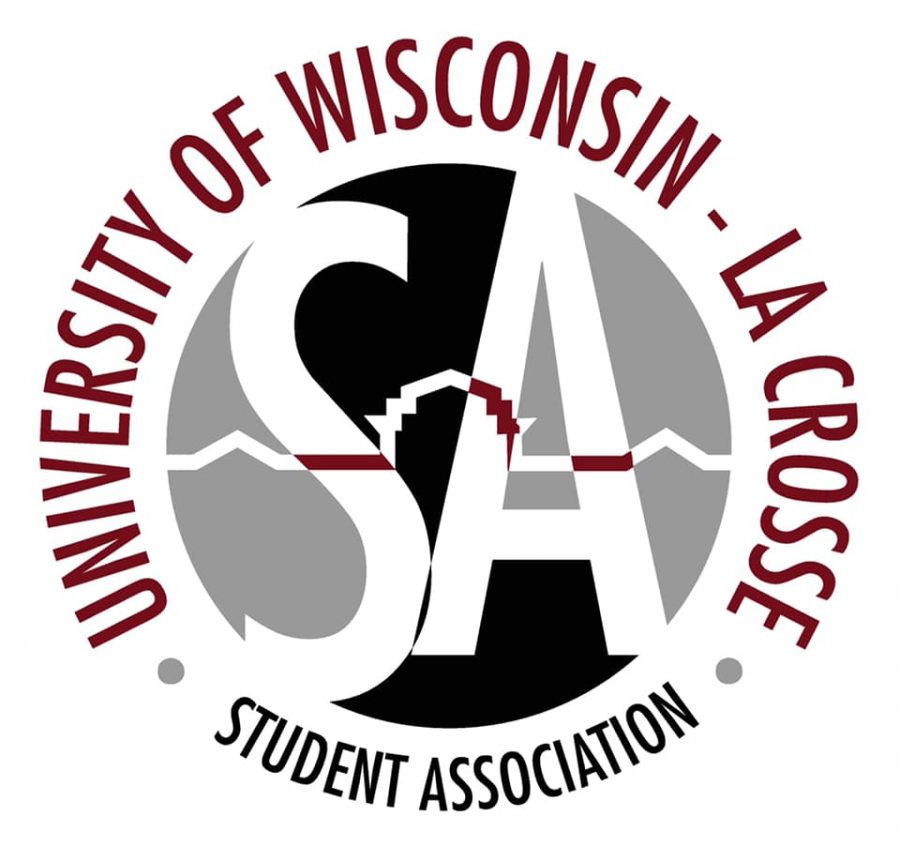Student Association discusses new security systems and the Green Fund Act
December 13, 2019
The Student Association at the University of Wisconsin-La Crosse met on Wednesday, Dec. 11, to meet with Chief Information Manager at UWL Mohamed Elhindi and Director of Information Technology Services (ITS) James Jorstad to discuss the new two-factor authentication service known as DUO. The senate also collaborated on the finalization of the approval of Green Fund initiatives, and to discuss dorms having complete 24-hour door security.
Because over 1000 student accounts were hacked last semester, officials at UWL have decided to implement the security system DUO. The system works through a coding system, allowing students access to emails and other important services through the use of cell phones. Every 12 hours, the DUO app will ask the user to verify their identity, which will then send a push-notification with a code that allows access to Office 365 email, Canvas, or Wings accounts.
Elhindi said the ultimate goal is to protect students and their private information. Hacked accounts can result in manipulated academic records or other privacy breaches.
Students without access to a smartphone will be able to purchase a key fob at the UWL bookstore, which will likely cost around $15. This system will be implemented during the spring 2020 semester.
The Student Association sent an email to all UWL students and faculty regarding this new initiative and the many phishing attacks that UWL students receive, saying, “There are a fair number of students who have either clicked on these nefarious links or even worse, provided their credentials and passwords. Two-step authentication helps prevent these further problems.”
Jorstad expressed how vital it is to check emails from ITS, as this information is vital for the safety of UWL students. Jostad reported that only 50 percent of UWL students actually read their emails.
The senate next discussed the finalization of the Green Fund Act. In prior meetings, the senate has discussed the efficiency levels that need improving at UWL. The senate passed resolutions to introduce LED lighting for the Veterans Memorial Walkway, the Recreational Eagle Center and Laux Hall. They also approved portable LED lights that would be used for scheduled events that are to be held in non-GPR buildings. GPR buildings are state-funded and unable to be altered by the Green Fund Act.
Sen. Packard, who represents the graduate students at UWL, expressed satisfaction at these resolutions. Packard is an etymology student and says the amount of fluorescent lighting in and around campus is responsible for the destruction of insect life in La Crosse. He said that LED lights emit very little heat and have a small amount of light that is apparent on a UV spectrum. With the cool, calming emissions from these LED lights, Packard said UWL is expected to see a possible improvement to the happiness of the La Crosse bug population.
The senate also decided against approving biodegradable smoothie cups for the UWL smoothie bar, as they plan to instead advocate for students to practice using reusable cups.
The UWL Office of Residence Life has decided to begin 24-hour automatic locked doors for all residence halls, a system other schools in the UW system have implemented. Additionally, students with UWL student IDs will have complete access to all residence halls.
The senators who live on campus expressed frustration that they learned this information in the senate meeting, rather than through the Office of Residence Life.
Sen. Schock and Chief of Staff Moralez said they felt disappointed that the Office of Residence Life felt there was no need to seek student approval on such an important matter. Sen. Erickson also said this plan may be a bit rushed and expressed concern about how students will react, especially if only 50 percent of students read their email.
Sen. Wolfe shared a story about a student from the University of Wisconsin-River Falls who was able to escape an attempted abduction because of a locked door that separated her from the perpetrator. She compared this system to what most people do when they enter their homes, which is to lock the door behind them. The Executive Branch will be meeting to discuss this matter further.






